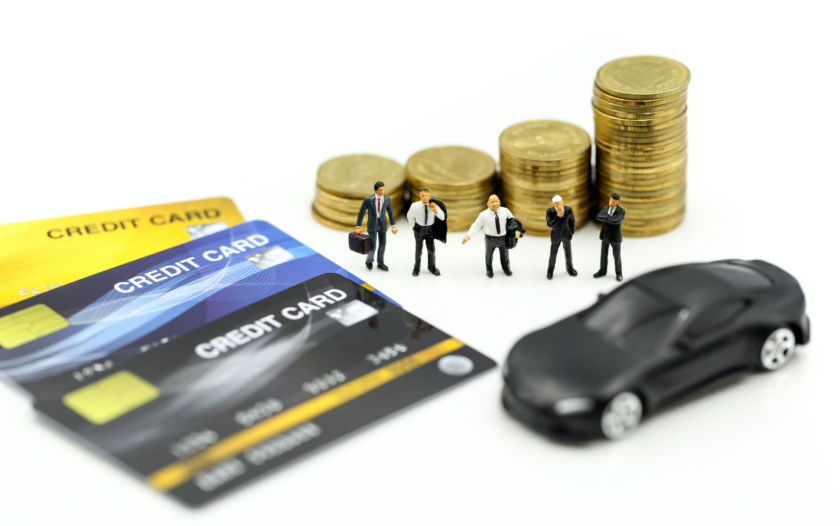Should You Pay Off Your Car Loan or Credit Card?
About Kevin
Kevin is a former fintech coach and financial services professional. When not on the golf course, he can be found traveling with his wife or spending time with their eight wonderful grandchildren and two cats.
Read full bio
At a Glance
Debt never seems to be one-dimensional. What starts out as a first credit card account quickly turns into a mix of credit cards, mortgages, auto loans, and personal loans. As you grind through those monthly payments, perhaps a windfall comes your way. Do you pay off your car loan or zero the balance on your credit card? It’s not a simple decision.
Here’s your dilemma. An auto loan is a secured loan. Automobile ownership is the result of paying that off. Credit card debt is unsecured, but the interest rates are high. It’s comparing apples to oranges, yet both have a financial impact on your life. In this article, we’ll break down the best ways to pay off each of these, and whether that’s a good idea.
Paying off the car loan
Most consumers choose the car loan as the loan to pay off first because they want to own the vehicle outright, without fear of repossession due to default. This is a reasonable choice, but it may not be the correct one. There could be an early payoff penalty. The amount of that penalty could offset the amount you save in future interest payments.
If you don’t have a lump sum of money, you could look for a loan to pay off debt. This is basically trading a secured loan for an unsecured loan, so the interest rate might be higher. You can view that as a trade-off for owning the car outright. There will also be options to refinance the personal loan later, so don’t look at it as a permanent solution.
Paying off the credit card
Paying off credit card debt can also be done with a personal loan. In this case, you should be able to reduce your interest rate. The average interest rate on a credit card is almost 20%. The average interest rate on a personal loan is less than 10% and can go as low as 3% if you have an excellent credit score. Do your research. There are several options out there.
As a consumer with multiple debt accounts, you’ll receive frequent offers in the mail for pre-qualified personal loans and pre-qualified credit cards. Be careful with these. Pre-qualification does not mean final approval and applying for approval will negatively affect your credit score. You may be better off searching online for debt consolidation lenders.
Check out lenders and solutions that will get you what you need.
Use the filters below to refine your search

Sorry, we didn’t find any options that meet your requirements. Please try modifying your preferences.
Congratulations! You’re close to seeing your offers!
Please take a second to review the details you shared earlier
Sorry, we didn’t find any options that meet your requirements. Please try modifying your preferences.
Car loan vs. credit card debt
Does any of this help with your decision? Paying off either an auto loan or a credit card is a great feeling, but at what price? Auto loans often have early repayment fees and applying for personal loans to pay off credit card debt can lower your credit score. If you just look at the potential consequences, this decision is almost impossible to make.
Focus on the positive. Paying off the auto loan will give you outright ownership of your car. Eliminating high-interest credit card debt will put money back in your pocket. Which of these is more important to you? Bounce the choice off your loved ones and friends if you’re having a hard time making the decision. There is no wrong answer here.
Bottom line: Prioritize interest rates
If we can offer anything to help you make a choice, it’s to prioritize interest rates. Lowering the amount of money that you pay each month in interest will give you more options for paying off other debt in the future. As for credit score impact, that’s temporary in the scenarios we described above, so take that off the table. Now, make a choice.
FAQs
In most cases, it is worth paying off a car loan early. Eliminating any debt is good, but there may be an early repayment penalty with an auto loan. Check your terms and conditions.
Paying off your car loan will eventually increase your credit score, but you may see a small drop in your score immediately after you do it. That’s temporary.
Sources
- https://www.experian.com/blogs/ask-experian/should-i-pay-off-my-car-or-my-credit-card/
- https://www.bankrate.com/finance/debt/pay-off-truck-or-credit-card-debt.aspx
- https://www.nerdwallet.com/article/finance/credit-card-debt-vs-installment-loans-pay
- https://www.rategenius.com/pay-off-credit-card-or-car-loan-first
- https://www.creditkarma.com/auto/i/paying-car-loan-early
- https://wallethub.com/answers/cc/pay-off-credit-card-or-car-loan-first-2140692272/
- https://www.cnbc.com/select/pay-this-debt-off-first/
- https://www.cnbc.com/2019/11/05/should-you-build-your-emergency-savings-or-pay-off-your-car-loan.html









